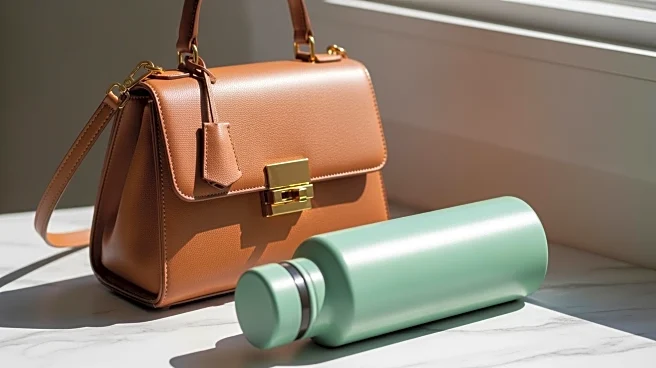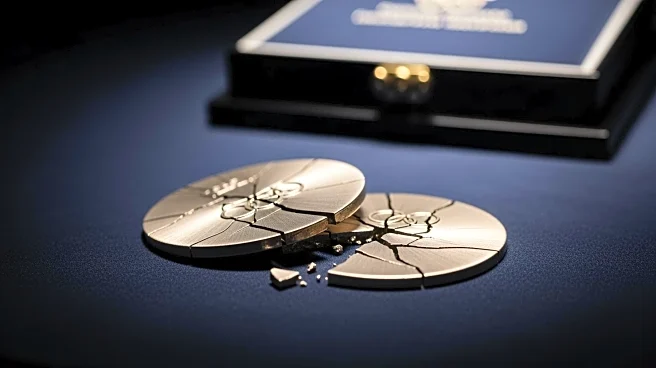What's Happening?
A recent PwC survey reveals a growing trend among younger generations towards purchasing secondhand luxury items, with Gen Z and Millennials leading the shift. The survey, conducted across several European
countries, indicates that 40% of Gen Z and 28% of Millennials have bought secondhand products, reflecting a conscious choice for sustainability. The research also highlights the importance of exclusivity and personalisation in luxury purchases, with Gen Z showing a strong preference for customisable products.
Why It's Important?
The findings underscore a significant transformation in consumer behavior within the luxury fashion sector, driven by younger generations' demand for sustainability and customisation. This shift presents both challenges and opportunities for luxury brands, which must adapt to meet these evolving preferences. Brands that successfully integrate sustainable practices and offer personalised experiences are likely to gain a competitive advantage, as consumers increasingly prioritize ethical and environmental considerations in their purchasing decisions.
Beyond the Headlines
The trend towards secondhand and sustainable luxury purchases reflects broader cultural shifts towards environmental consciousness and ethical consumption. As younger consumers redefine luxury, brands may need to reconsider their production processes and marketing strategies to align with these values. This could lead to long-term changes in the industry, including increased transparency, circular fashion models, and a focus on storytelling around product heritage and impact.









